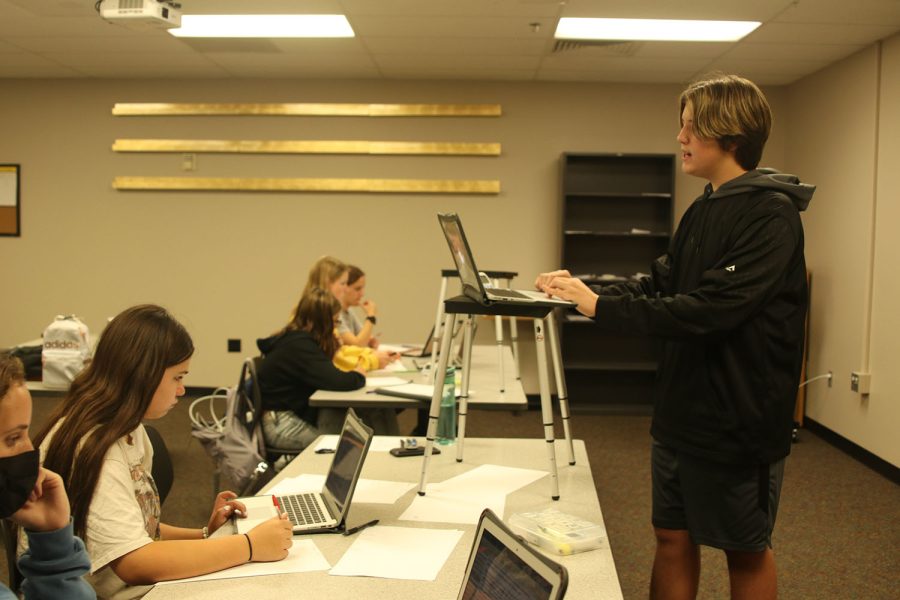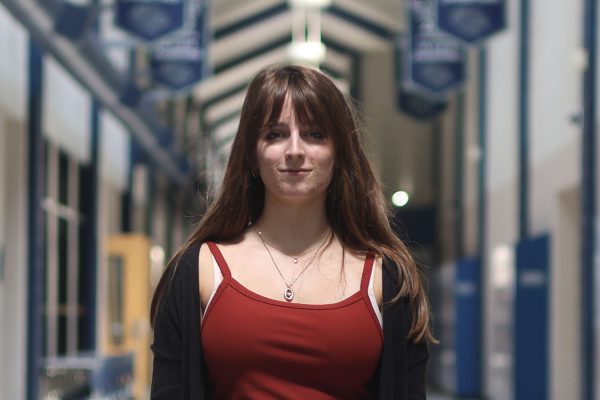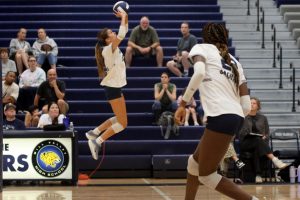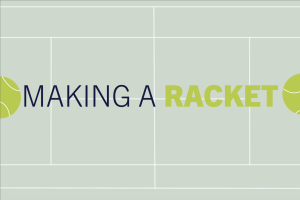Debate faces tough competition at Blue Valley North
The debate team found success despite a close tournament Saturday, Oct. 15
Reading the affirmative speech for the debate team’s second practice round, freshman Barron Fox stands at the front of the room Friday, Sept 23.
October 19, 2022
Debate had a successful tournament at Blue Valley North Saturday, Oct. 15. With a tumultuous topic of NATO and foreign policy this year, debaters have to get creative with what they’re arguing and how they argue it because each tournament can present different types of competition. .
Sophomore Bella Guess, varsity debater, states that the resolution is “The United States federal government should substantially increase its security cooperation with the North Atlantic Treaty Organization in the area of artificial intelligence, biotechnology and cybersecurity.”
The general consensus around the topic is positive, as many debaters enjoy the challenge of geopolitical affairs. However, tournament competitions can be brutal regardless of how much a debater enjoys the topic. According to the team, each pair of debaters faced harsh competition when opposing challengers from Blue Valley West.
Sophomore Sophie Hsu, a novice debater, and her debate partner, freshman Jay Powell, both express the difficulty of arguing against the school. Hsu reflects on the tournament.
“Blue Valley put up a really good fight,” states Hsu. “They made really good points and they had very good speakers.”
Speaking, according to Hsu, is one of the most important parts of debate, as the level of understanding and confidence you have is the same understanding conveyed to the judge, who decides the outcome of each round.
“A lot of [debate] is just making sure that you seem confident,” Hsu said. “If you can appear that way you get a lot more success.”
According to Guess, adapting to the judge’s level of understanding of debate can also be a difficult factor. Especially in situations with new debate judges who require slower argumentation, debaters find it difficult to convey all of their arguments in the time it takes them to slow down. According to freshman Sam Bowling, who is a novice this year, this was the main fault in many of their rounds.
“Because it takes so long for us to get through all of our arguments, [the other team] can just say that we dropped or basically conceded our initial arguments,” Bowling said.
The interconnectivity of an argument makes every point crucial to its success. By dropping, or conceding, an argument, the other team automatically wins that point which often leads to the opponent’s ultimate victory in the round.
Despite the tough competition and judges, the Jaguar debate team finished strong with the team of Hsu and Powell finishing with a record of 4-1 and other teams finishing 3-2 and 2-3 records.










